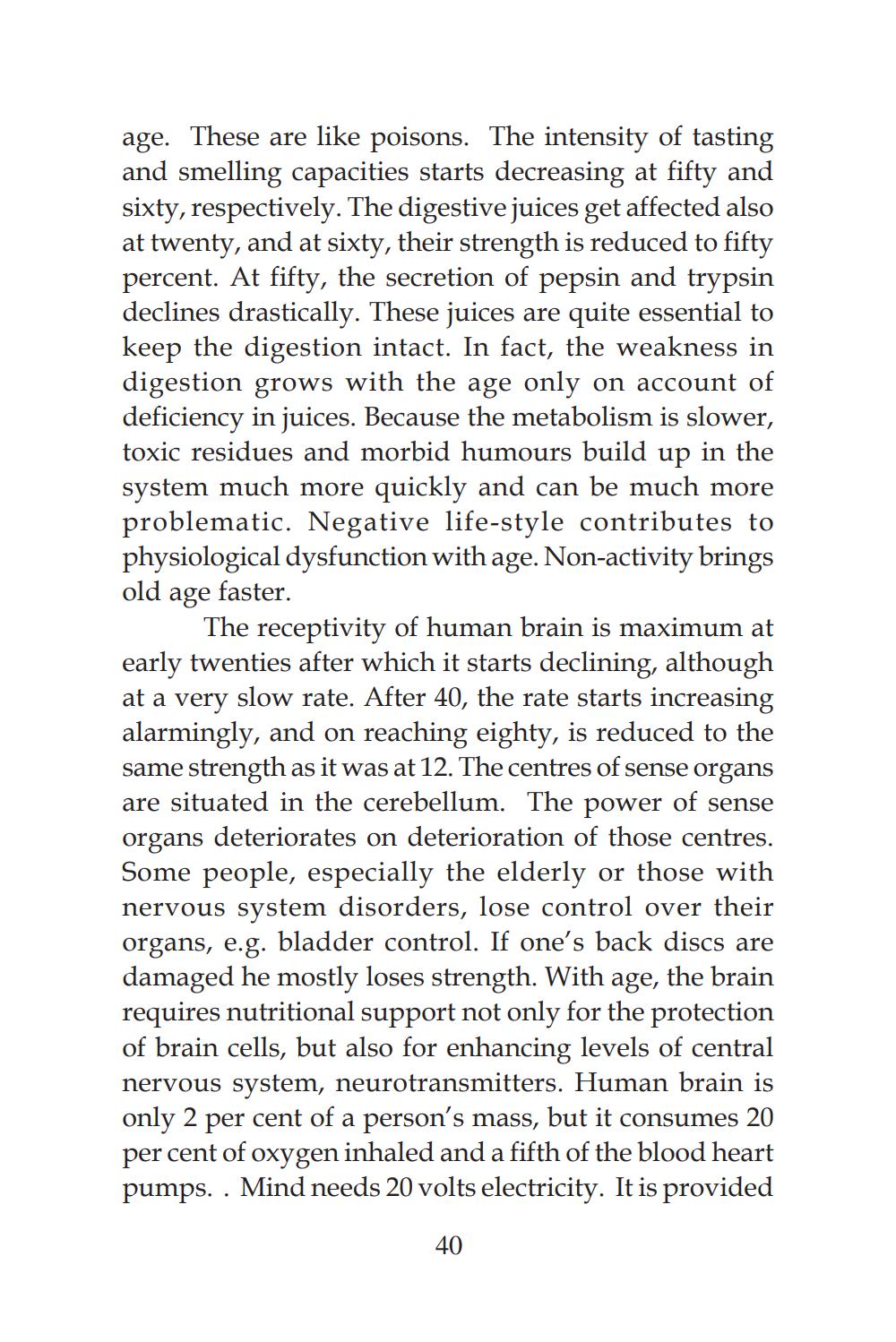________________
age. These are like poisons. The intensity of tasting and smelling capacities starts decreasing at fifty and sixty, respectively. The digestive juices get affected also at twenty, and at sixty, their strength is reduced to fifty percent. At fifty, the secretion of pepsin and trypsin declines drastically. These juices are quite essential to keep the digestion intact. In fact, the weakness in digestion grows with the age only on account of deficiency in juices. Because the metabolism is slower, toxic residues and morbid humours build up in the system much more quickly and can be much more problematic. Negative life-style contributes to physiological dysfunction with age. Non-activity brings old age faster.
The receptivity of human brain is maximum at early twenties after which it starts declining, although at a very slow rate. After 40, the rate starts increasing alarmingly, and on reaching eighty, is reduced to the same strength as it was at 12. The centres of sense organs are situated in the cerebellum. The power of sense organs deteriorates on deterioration of those centres. Some people, especially the elderly or those with nervous system disorders, lose control over their organs, e.g. bladder control. If one's back discs are damaged he mostly loses strength. With age, the brain requires nutritional support not only for the protection of brain cells, but also for enhancing levels of central nervous system, neurotransmitters. Human brain is only 2 per cent of a person's mass, but it consumes 20 per cent of oxygen inhaled and a fifth of the blood heart pumps. . Mind needs 20 volts electricity. It is provided
40




